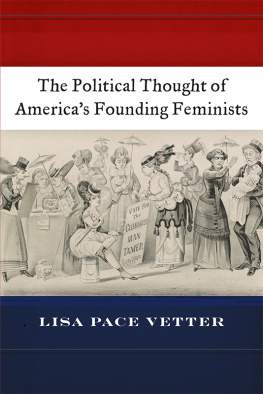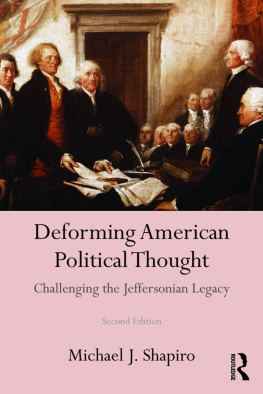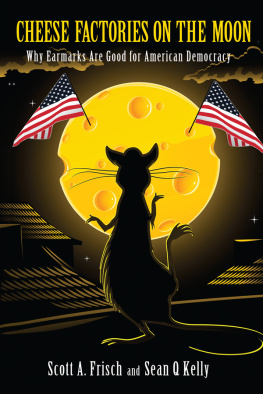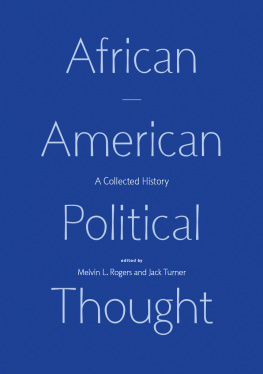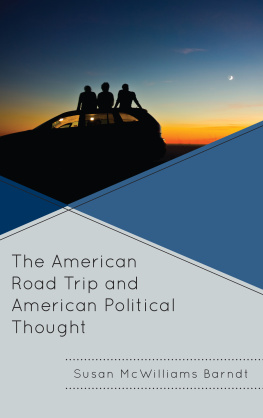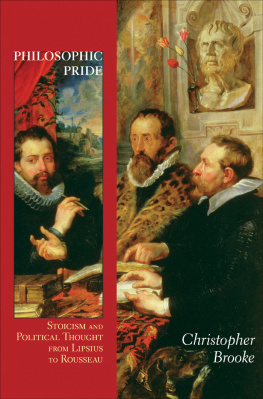Frisch Morton J. - American political thought: the philosophic dimension of American statesmanship
Here you can read online Frisch Morton J. - American political thought: the philosophic dimension of American statesmanship full text of the book (entire story) in english for free. Download pdf and epub, get meaning, cover and reviews about this ebook. City: United States, year: 2017, publisher: Routledge, genre: Politics. Description of the work, (preface) as well as reviews are available. Best literature library LitArk.com created for fans of good reading and offers a wide selection of genres:
Romance novel
Science fiction
Adventure
Detective
Science
History
Home and family
Prose
Art
Politics
Computer
Non-fiction
Religion
Business
Children
Humor
Choose a favorite category and find really read worthwhile books. Enjoy immersion in the world of imagination, feel the emotions of the characters or learn something new for yourself, make an fascinating discovery.

- Book:American political thought: the philosophic dimension of American statesmanship
- Author:
- Publisher:Routledge
- Genre:
- Year:2017
- City:United States
- Rating:4 / 5
- Favourites:Add to favourites
- Your mark:
- 80
- 1
- 2
- 3
- 4
- 5
American political thought: the philosophic dimension of American statesmanship: summary, description and annotation
We offer to read an annotation, description, summary or preface (depends on what the author of the book "American political thought: the philosophic dimension of American statesmanship" wrote himself). If you haven't found the necessary information about the book — write in the comments, we will try to find it.
Frisch Morton J.: author's other books
Who wrote American political thought: the philosophic dimension of American statesmanship? Find out the surname, the name of the author of the book and a list of all author's works by series.
American political thought: the philosophic dimension of American statesmanship — read online for free the complete book (whole text) full work
Below is the text of the book, divided by pages. System saving the place of the last page read, allows you to conveniently read the book "American political thought: the philosophic dimension of American statesmanship" online for free, without having to search again every time where you left off. Put a bookmark, and you can go to the page where you finished reading at any time.
Font size:
Interval:
Bookmark:
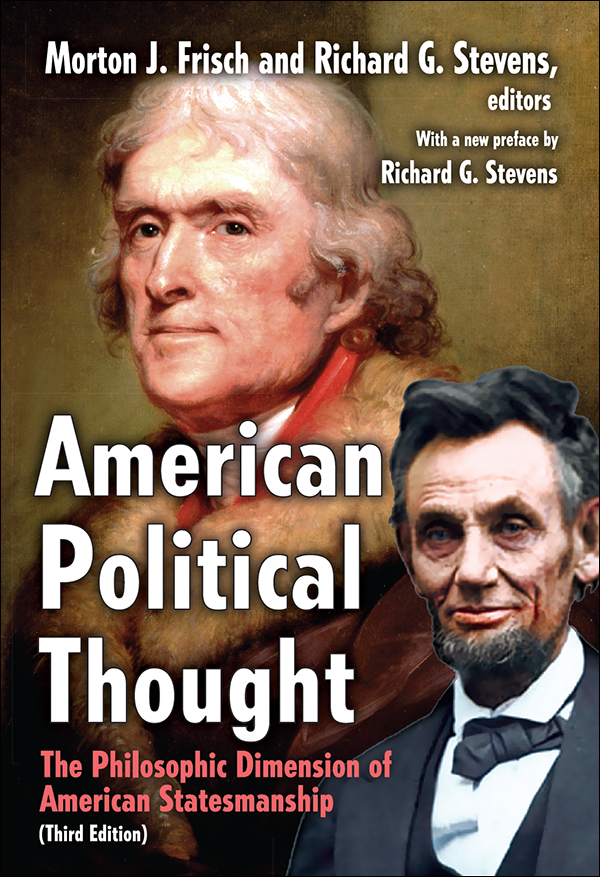
Originally published in 1971 by Charles Scribners Sons
Published 2011 by Transaction Publishers
Published 2017 by Routledge
2 Park Square, Milton Park, Abingdon, Oxon OX14 4RN
711 Third Avenue, New York, NY 10017, USA
Routledge is an imprint of the Taylor & Francis Group, an informa business
Copyright Taylor & Francis.
All rights reserved. No part of this book may be reprinted or reproduced or utilised in any form or by any electronic, mechanical, or other means, now known or hereafter invented, including photocopying and recording, or in any information storage or retrieval system, without permission in writing from the publishers.
Notice:
Product or corporate names may be trademarks or registered trademarks, and are used only for identification and explanation without intent to infringe.
Library of Congress Catalog Number: 2010031365
Library of Congress Cataloging-in-Publication Data
American political thought : the philosophic dimension of American statesman
ship / [edited by] Morton J. Frisch and Richard G. Stevens. -- 3rd ed.
p. cm.
Includes bibliographical references.
ISBN 978-1-4128-1139-2 (alk. paper)
1. Political scienceUnited States--History. I. Frisch, Morton J.
II. Stevens, Richard G., 1925
JA84.U5A74 2010
320.0973--dc22
2010031365
ISBN 13: 978-1-4128-1139-2 (pbk)
To Joey and Norma
The premises on which this book has rested from its first edition forty years ago-that the highest political thought in America has been the political thought of its statesmen, that their thought, although sub-philosophic, is nonetheless a reflection of political philosophy in the full sense, and that it was elicited by the great crises in American historywere all conceived by Morton Frisch. When Morton invited me to join in the development of the book I agreed immediately that these conceptions were sound. Further, Frisch identified the great crises up to that point as the Crisis of the Founding, the Crisis of the House Divided, and the Crisis of the Great Depression. These things also I quickly acknowledged. Along with these overt agreements there was a tacit understanding that we ought to stick to crises and statesmen that were behind us in time. Perhaps because Morton and I both served in combat in World War II we did not quite think of it as a thing of the past and therefore did not chalk it up as a fourth great crisis, yet it was surely that, even though it reared its head before the Great Depression had quite slipped into the history books. Then, too, 1971 was roughly the mid point of that span of time characterized as the Cold War. With the Cuban Missile Crisis as its badge, we could hardly deny to the Cold War as a whole its status as the Fifth Great Crisis. There was a saying of the ancientsHerodotus, Sophocles, Aristotle, pretty nearly all of the ancientsthat one should call no man happy while he lives. This admonition reminds us that settled appraisals can be overturned by chance or by the whim of the gods while things are still in motion. Of course we could not in 1971 foresee the end of the Cold War. I wrote a short essay in 1973 that cautioned us to prepare for two hundred years of patient endurance of it. I was only off by 182 years. The end of the Cold War seems to have come with the dissolution of the Soviet Union in 1991. The end seems to have come, however, under a shadow that counsels us to dance our dance of peace with one eye fixed on those things that are off to one side of the dance floor.
The word crisis, like many words now, is used so often and so carelessly that it has almost lost its meaning. A rough spot in the road is a problem, not a crisis. In medicine, it does not mean that the patient has the sniffles and might miss a round of golf. It means that the patient will either recover or will die, and the physician cannot assume either outcome. The susceptibility of a man to misfortune has as its counterpart the possibility of the dissolution of a country except that the seed of that dissolution cannot be laid off on the gods. A country can be undone by an external force, but as Plato makes Socrates show in the eighth book of the Republic, if a political order is overthrown, it most likely will be because of a seed buried in the core of that political order itself. What is more, when a political order is beset by a crisis, it may be the case that the crisis does not stand alone. It may be that the crisis has a root that can be traced, perhaps to a previous crisis, or it may be that it is kin to a future crisis not foreseen. Perhaps the Depression, the Second World War, and the Cold War wereareall intertwined as three elements of a larger crisis to which we have so far assigned no name.
It should be no surprise that the Crisis of the Great Depression did not end our worries. As we mentioned above, we were still immersed in it when we were engulfed in World War II, a war more terrible than any before it, a war that constituted a grave crisis for the whole of Western Civilization. Furthermore, we had not yet begun to clean up after the war with, among other things, the Marshall Plan when, in 1946, Winston Churchill, who was skilled at foreseeing events, and who was the greatest British friend of America since Edmund Burke, gave a speech in Missouri in which he said that an iron curtain had descended across Europe. Bang! The Cold War had begun.
Hindsight is not as good as foresight, but lacking foresight it is well to have hindsight. Looking back, we are led to ask if the Cold War had just begun in 1946. Were not the beginnings of it laid in the revolution of 1917, or perhaps in the political theorizing that had gone on for the seventy years leading up to 1917? Was the big red scare of the 1920s really nothing more than a scare? Further, did the politicians, academics, and pundits who offered America their advice in the 1930s on how to turn the depression from a crisis into a mere problem to be solved include among their number some with intellectual roots that went back more to Rousseau than to Locke? Let us go back earlier. Did the Crisis of the House Divided stand on its own? Was it not rooted in the difficulties that had faced the Founders, difficulties that, as Lincoln put it, the Founders thought they had put on a course to eventual resolution?
And what now? Are we not immersed in something akin to what in 1996 Samuel P. Huntington called The Clash of Civilizations? Are any of us so far-seeing that we can dismiss out of hand the possibility that this crisis is linked both structurally and ideologically to its precursor, the Crisis of the Cold War? These last fourthe Depression, World War II, the Cold War, and the Clash of Civilizations, appear as crises not just for America but for Western Civilization as a whole, perhaps for civilization as such.
There occur so far in our history, then, six great crises. When the Framers completed their writing of the Constitution and sent it to the Congress of the states to be referred to the people for ratification, its acceptance was in doubt. When it was accepted, its early failure was a strong possibility. The debt owed to George Washington, who set it on a course that promised success, is immeasurable. Over the next seventy-two years a thousand blows were dealt it culminating in the start of a Civil War aimed at ending the Union. Then, seventy-six years after that war we were engaged in World War II. Winning that war was not a certainty. If adequate statesmanship had not been present or if public spirit had not responded to that statesmanship, we might have yielded, surrendered to a victorious Germany and Japan. Where then would the Constitution and the country be now? That is the meaning of crisis. But it was the Third Reich that perished. The vaunted Reich of a Thousand Years lasted but twelve. Even with our victory, however, is it possible that World War II, followed by the Cold War, might have exhausted us, drained us or our political leaders of will? Will the future break us? Platos Socrates in the
Font size:
Interval:
Bookmark:
Similar books «American political thought: the philosophic dimension of American statesmanship»
Look at similar books to American political thought: the philosophic dimension of American statesmanship. We have selected literature similar in name and meaning in the hope of providing readers with more options to find new, interesting, not yet read works.
Discussion, reviews of the book American political thought: the philosophic dimension of American statesmanship and just readers' own opinions. Leave your comments, write what you think about the work, its meaning or the main characters. Specify what exactly you liked and what you didn't like, and why you think so.

